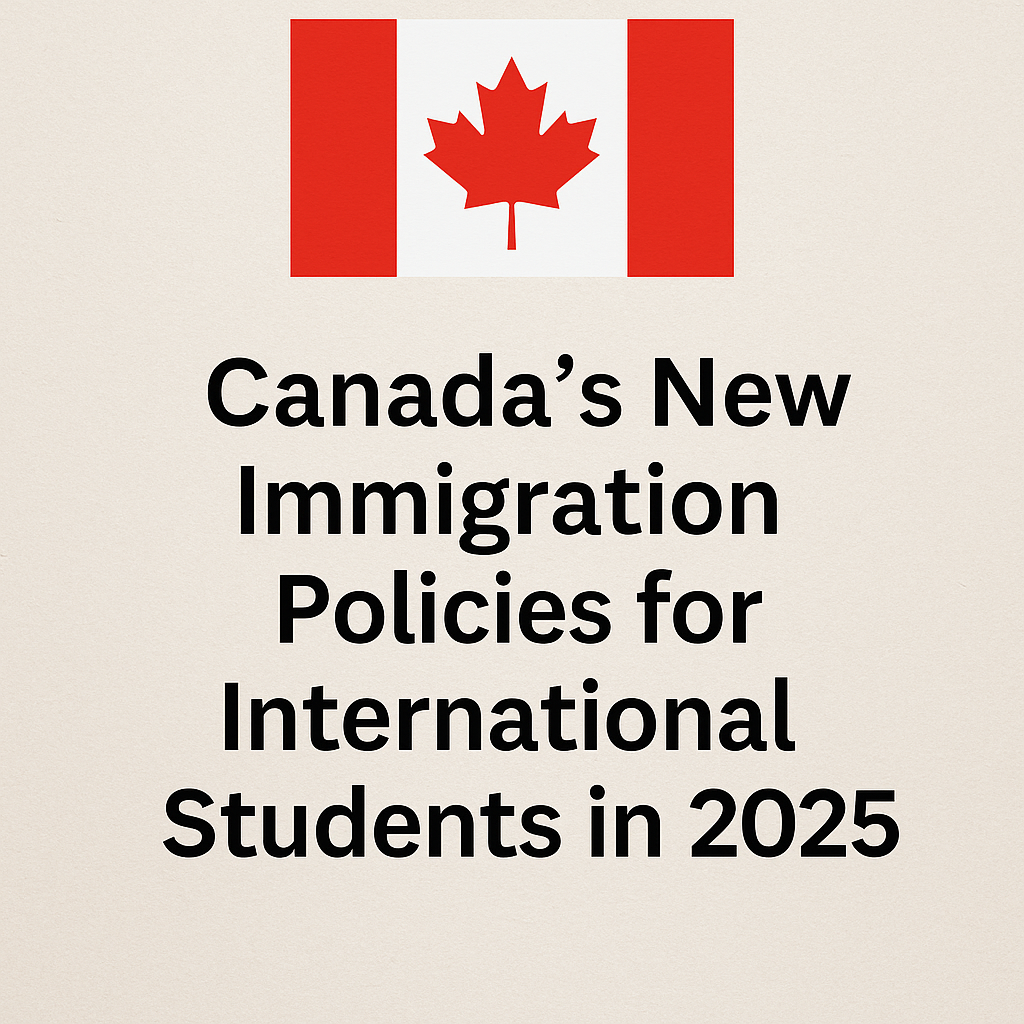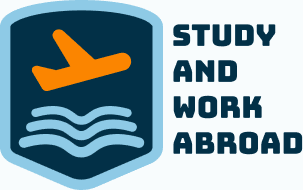Call Us:+91-9920234749, +91-9833420909 info@studyandworkabroad.in

Canada’s New Immigration Policies for International Students in 2025
Canada has always been a top destination for international students, thanks to its quality education, multicultural environment, and promising career opportunities. In 2025, the Canadian government introduced new immigration policies that directly affect international students. These updates impact everything from student visa rules to work permits and pathways to permanent residency (PR). Whether you’re planning to study in Canada or are already there, understanding these changes is key to making the most of your journey.
In this blog, we’ll break down the most important updates, what they mean for you, and how to plan your next steps smartly.
Why Are These Changes Happening?
Over the past few years, Canada has seen a significant rise in international student numbers. While this brings many benefits, such as addressing skill shortages and boosting the economy, it has also put pressure on housing and public services. In response, the Canadian government is fine-tuning its approach to ensure a better balance between growth and sustainability.
The 2025–2027 Immigration Levels Plan introduced by Immigration, Refugees and Citizenship Canada (IRCC) is part of this broader strategy. For the first time, this plan includes specific goals for temporary residents, including international students and foreign workers.
What’s New with Canada Student Visa Updates in 2025?
1. Study Permit Caps
In 2025, the number of new international student permits is capped at 437,000, a 10% reduction from 2024. This limit helps ensure there’s enough housing and resources for everyone.
2. Mandatory Provincial Attestation Letters (PALs)
Now, every student applying for a Canadian study permit must obtain a Provincial Attestation Letter (PAL) from their chosen school. This letter proves that your application falls within the province’s allocated quota.
What This Means for You:
- Apply early! Quotas may fill up quickly.
- Stay in close contact with your institution to secure the PAL.
- Some provinces may offer more flexibility than others.
What’s New with the Post-Graduate Work Permit (PGWP) in 2025?
The Post-Graduate Work Permit (PGWP) is a crucial part of many students’ plans, letting them work in Canada after graduation. Here’s what’s changed this year:
1. Broader Eligibility
Graduates of college-level bachelor’s programs are now eligible for PGWPs, regardless of their field of study. This is a big shift from the earlier rule, which favored only high-demand programs.
2. Language Requirements
New language proficiency standards have been introduced. Applicants must now prove their English or French skills when applying for a PGWP.
3. Passport Validity Impacts Permit Length
Even if you’re eligible for a 3-year PGWP, your passport’s expiry date can limit the duration. If your passport expires sooner, your work permit will be shorter.
Key Tips:
- Renew your passport before applying if needed.
- Start preparing for your language test while studying.
- Don’t wait until graduation to understand PGWP requirements.
PR Pathways for Students in 2025
The good news? Canada still offers strong PR opportunities for international graduates. In fact, the government is creating new and more targeted streams to help students settle permanently.
1. Canadian Experience Class (CEC)
If you’ve gained at least one year of skilled work experience in Canada, you’re a good fit for the CEC. You’ll also need to meet language and other criteria.
2. Provincial Nominee Programs (PNPs)
Many provinces run their own immigration programs. These often include special streams for international graduates who studied and want to stay in that province.
3. New PR Pathways in 2025
Canada introduced four new immigration pathways this year that are tailored to high-demand fields like healthcare, IT, education, and trades.
Pro Tip: Choose programs aligned with labor shortages to improve your chances of PR.
Planning Ahead: What Students Should Focus On
If you’re aiming to study in Canada and eventually work or settle there, keep these things in mind:
- Start early. Apply for your course and PAL as soon as possible.
- Pick the right program. Focus on courses that lead to in-demand jobs.
- Build your profile. Work part-time, do internships, and stay involved on campus.
- Take language training seriously. Even if your course is in English, you’ll likely need to prove proficiency later.
- Understand your province. Immigration options vary across provinces, so research carefully.
How AVF Consultants Can Help You
Applying to study abroad can feel overwhelming, especially with rules changing often. That’s where AVF Consultants come in.
We are your trusted partner for everything related to studying and working in Canada. Our services are designed to support you at every step:
Program & University Selection: We guide you in picking the right course that aligns with your career goals and PR prospects.
Study Permit & PAL Assistance: We help secure your Provincial Attestation Letter (PAL) and ensure your visa application is accurate and complete.
PGWP and PR Application Help: From work permits to permanent residency, we assist with documentation, eligibility checks, and filing.
Language Test Prep Support: We offer coaching and materials to help you crack IELTS, TOEFL, or French language tests.
Ongoing Support in Canada: Whether it’s job hunting tips or housing guidance, our team is with you even after you land.
Our goal is simple: Help you turn your Canadian study experience into a long-term success story.
FAQs: Canada Immigration Updates for Students 2025
Q1: What is the total study permit limit for 2025?
A: Canada capped study permits at 437,000 in 2025 to manage resources and housing.
Q2: What is a PAL and why do I need one?
A: A Provincial Attestation Letter is required for your study permit application. It confirms you’re within the province’s student quota.
Q3: Am I eligible for a PGWP if I study a non-technical subject?
A: Yes. The field-of-study restriction was removed in 2025 for college bachelor’s programs.
Q4: Do I need a language test for PGWP?
A: Yes. You must now prove language proficiency (English or French) when applying.
Q5: How can I increase my chances of getting PR?
A: Focus on in-demand fields, work during and after your studies, and explore PNP or CEC options.
Q6: Can AVF Consultants really help after I land in Canada?
A: Absolutely. We provide post-arrival support including job search guidance, housing help, work permits and PR advice.
Final Thoughts
Canada’s new immigration policies in 2025 are meant to ensure a sustainable, fair system for students and the country alike. While there are more steps to follow, the opportunities are still massive—especially if you plan ahead.
Let AVF Consultants help you navigate every detail, from course selection to permanent residency. We’re here to make your dream of studying, working, and living in Canada come true—smartly, smoothly, and successfully. Get in touch with AVF Consultants today and

